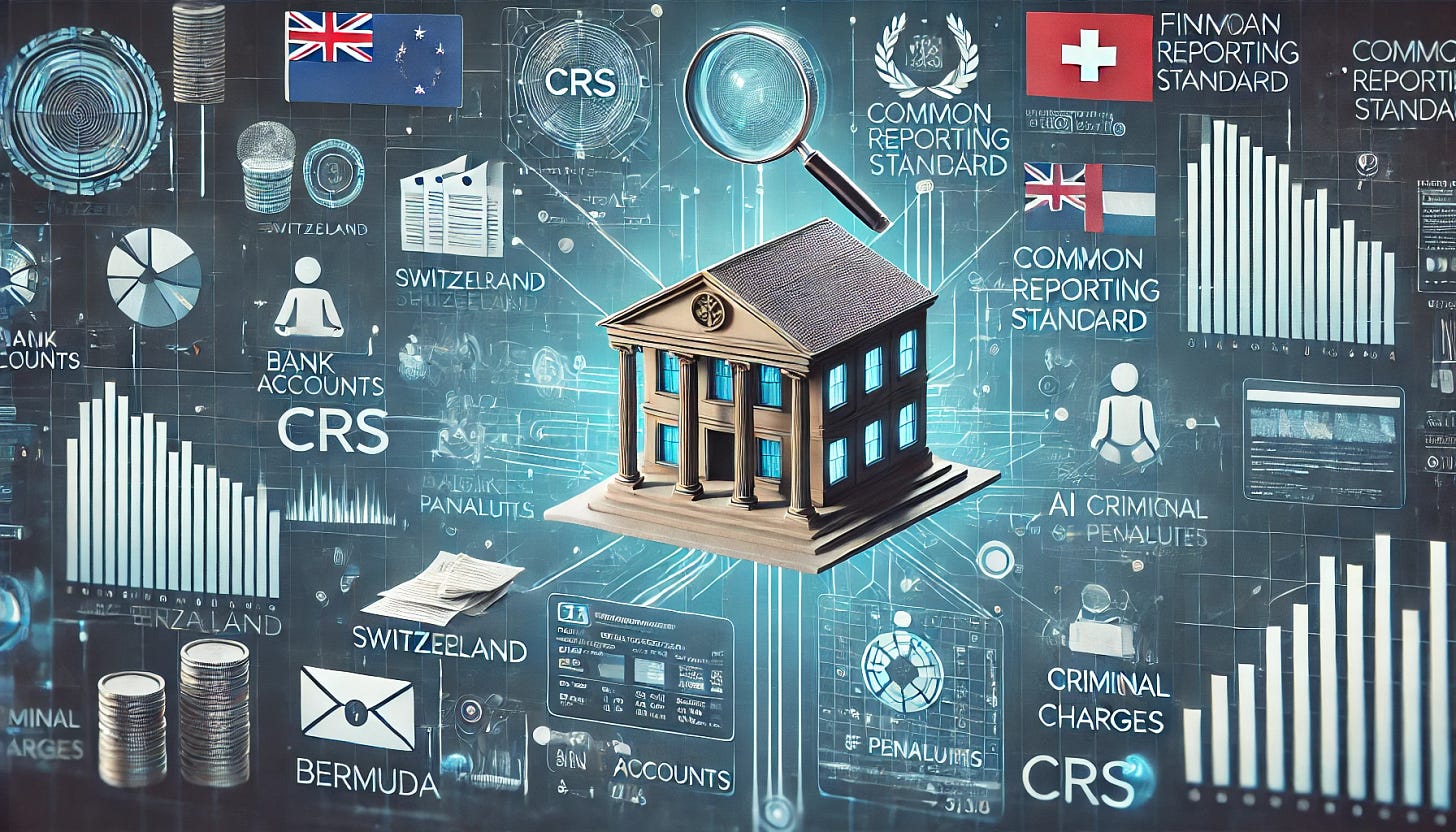Forced To Report Voluntary
The FT reports that the number of people reporting their undeclared foreign assets to the UK tax authorities has increased by 22%. Why are people reporting more often?
People are not reporting voluntarily
What has forced them to do this in the last year? The Financial Times article says that:
The UK budget has allocated funds for the tax administration to hire an additional 5,000 people to check taxpayers;
the administration has sent out many more and more precisely targeted letters (a la, we see you now);
more and more information is coming from the CRS system, as more and more offshore jurisdictions have joined the CRS system (and a growing part of the public is aware of it); more than 120 countries have joined the system, including Switzerland, Bermuda, BVI, Cayman Islands.
What is CRS?
Most countries have joined the CRS system, which requires banks and other financial institutions to report annually to their tax authorities information about the bank accounts (year-end balance and balance) of individuals who are tax residents in other CRS member states. The tax authorities of the relevant country then forward this information to the tax authorities of the person's country of tax residence. Here is a separate blog on CRS.
SRS receives more information from other sources
There is also a common myth that the SRS will not find out anything if I use payment service providers such as Revolut or Paysera. So far, the most visible SRS activities with this information have been related to VAT registration and application requirements due to another anti-avoidance mechanism - the so-called DAC7 EU directive, which requires online platforms (Booking.com, AirBnB, etc.) to report to tax authorities about customers who earn on their platforms. By the way, from 2026 crypto exchanges will also have similar reporting obligations to tax authorities.
What could this mean for people in Latvia?
So, it is only a matter of time before the SRS and its AI systems will be able to process the information blocks received from abroad, compare them with the received PIT declarations and identify discrepancies. Then, probably, the same AI algorithms will also automatically generate SRS reminder letters. In the UK, there are special forms for such voluntary reporting. We don’t have anything like that in Latvia, but it is unlikely that anything special is even necessary in this case. Anyone can correct 3-year-old past in their PIT declarations.
Incentives to pay yourself
You only have to apply a late payment interest of 18.25% per annum for self-declared amounts. There will generally be no other sanctions. If you 'get caught', you can usually expect a 20-30% fine (up to 300% for under-the-table salaries), but unpaid taxes above EUR 35,000 may result in criminal liability, and the right of the SRS investigators to delve beyond these 3 years.



